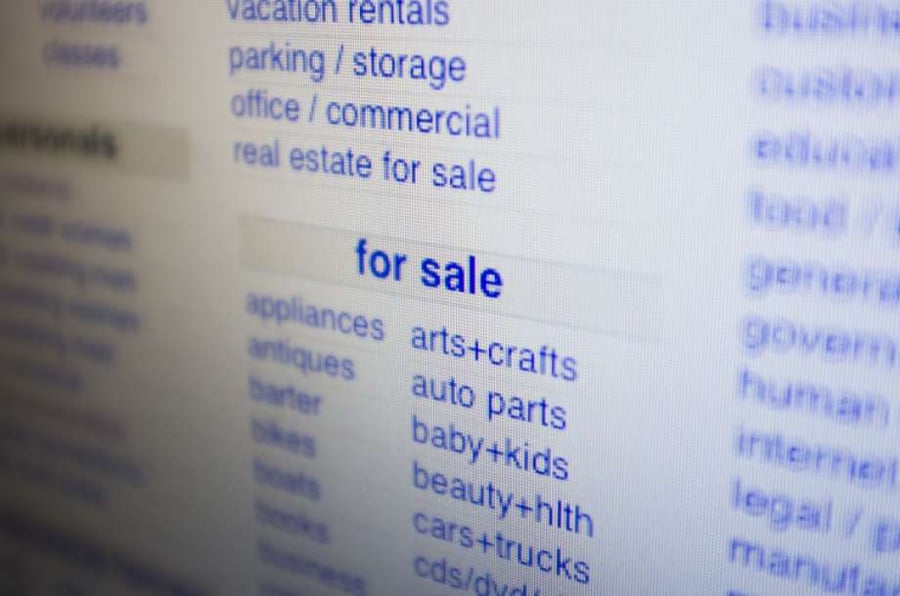Let's Sell it Ourselves!
An integral part of owning a special car, be it a Ferrari or a Firebird, is the necessity of selling it one day. Perhaps your interest has waned or you’re ready to experience the next rung up the ladder. Typical family cars are usually simply traded in on the next one because there are logistical advantages with taxes, finance payoffs and expediency. But a classic or collector car rarely accommodates a trade scenario very well and generally needs to be turned into cash for the next acquisition. Let's discuss why.

Owners tend to be more emotionally invested in their hobby cars than the family SUV, and even if the Porsche dealer offered to take the Porsche 993 on trade, the allowance always seems too low. So what to do? Many owners will run an internet search for cars like theirs and conclude “That dealer’s a crook—it’s worth much more than he offered! I’m going to sell it myself!” Next thing, he has it advertised somewhere for whatever’s the highest amount he found similar cars listed for. Great idea, on the face of it, but unfortunately there are realities that need to be considered. Mainly, there can be a lot of difference between a fully prepped-for-sale car and the typical private owners’.
While the family cars are usually diligently maintained—because a spouse will complain if the A/C in the car isn’t icy, so it gets fixed. But it’s just human nature to procrastinate about a recreational car’s needs. The tires may look great, but are twelve years old. A drip pan has been necessary on the garage floor for years. Yeah, the valves clatter a bit, but so what? The interior light hasn’t worked for years and neither does the blower fan’s high speed. You get the idea. None of these things register as ‘needs’ to the current owner, but certainly will to any prospective buyer. Perversely, people will live with faults in their own car, but expect any they buy to be perfect!
Successful vintage car dealers know this and anticipate spending several thousand dollars to get all that ‘little stuff’ fixed, knowing it will kill a sale if they don’t. Also, they will invest time and money to meticulously detail, polish and buff each car—efforts the DIY guy often shortcuts. Consequently, a dealer has to pay under market value to acquire his merchandise, so he can recondition it and still make some profit. The private seller may be a very successful professional in his career field, but does he know how to write a compelling car advertisement? Perusing any listing of ‘for sale’ items clearly reveals that most people do not. Critical information is left out, strong points are not mentioned and they act like words cost $10 each. Professional sellers, however, have honed that skill and craft ads that entice a reader to pursue their cars by creating an attractive image that invites calls. Another important element is a portfolio of detailed photos, not a couple taken at dusk with a cell phone.
Such inexperience is exacerbated by habits in the DIY seller’s lifestyle: From a secretary in the habit of screening all unknown callers, to family members who know nothing of the car or even that it’s been advertised for sale. Most professional people no longer answer cell calls from unknown numbers, either. Then there’s the logistics of showing the car when an actual prospect has managed to make contact. Professionals are at work and the car is not at the office during the day—and he’s going to Houston for meetings all next week. We in sales quickly learn that time kills deals, because few prospective buyers will persist—they simply call someone else. Say what you will about glib salesmen’s patter, but successful ones have learned how to quickly develop productive rapport and provide accurate, compelling information about an interesting automobile. Our hypothetical businessman may be very good at discussing his business with peers, but is a fish out of water when trying to sell, which most folks aren’t very good at; similar to the unease many people feel about public speaking. In nearly every sales environment, from car dealers, jewelry stores or real estate offices, 10% of the staff routinely makes 90% of the sales.

OK, despite the odds, a connection has been made and someone wants to see the car! Great!…or is it? Think about this: do you really want to invite strangers to your home to see a car? Assuming were talking about something worth a significant amount of money, there are people who troll Craigslist looking for opportunities. A home with a valuable discretionary car probably has more good stuff to steal! When a helpful DIY seller mentions that he and his family will be in Hawaii all next week so the caller can’t come see the car then, guess when this potential ‘buyer’ will show up! When someone arrives, he might be there to inspect the car…or what else you have and your security system. Even when the inquirer is completely legitimate, the first time a complete stranger knocks on the door asking to see “the car for sale,” surprising and frightening the wife is the last time that’s going to happen! Because, people don’t always show up when they say they will. But, let’s say we have a legitimate prospect, who arrives Saturday morning when expected, he seems interested and now wants to take the car for a drive. But it’s a two-seater and he brought along a buddy. Do you want to send them off alone? It’s that, or you leave the buddy roaming around in your garage while you go along. Hmmmmm. Maybe the prospect claims to be seriously interested and now wants to take the car to “his mechanic” for an inspection. Who’s this guy? Does he know anything about your car? You certainly aren’t going to let the prospect take it for a day, or are you going to take time off work to do it? What to do??

A professional seller has all those problems covered. A great ad was placed in the right venues; his salespeople culled out the solicitors, curious and timewasters; they were available to take calls at all reasonable hours to build excitement about the car and it was right there, available to be seen, in a professional location, 9-5. Yes, these places charge a percentage for their service, but in nearly all cases will sell the car for more than the DIY guy was ever going to get and will cover their fee.
Full disclosure, we are a dealership that offers consignment sales, so naturally I have painted an unfriendly picture of DIY selling. But in fact, these are all realistic scenarios. A service such as ours keeps your car and your family safe and we are—honestly—much more likely to sell a car than most individuals are. In the event of a serious prospect wanting a pre-purchase inspection, a dealer has people who can take the car to a known-capable shop and pick it up later while the car owner remains productively at work. An experienced dealer can avoid title problems and as a skilled negotiator, can more effectively close a sale because he has the incentive of a commission when it’s all done. Also, an out-of-town buyer will be much more comfortable wiring $50,000 to an easily-vetted licensed dealership than to some individual three states away. Granting a small percentage as a fee to get your car sold promptly is better than running ineffective ads in the wrong places for months. Many accomplished consignment sellers also don’t want to take on a car the owner has turned ‘stale’ with ongoing amateurish ads.
Yes, there are exceptions: Most consignors don’t want inexpensive cars and those are usually adequately handled by DIY anyway. Also, if you’re selling something highly modified, only you or the guy who built it know enough about it to answer all the questions and effectively sell it. But, not all consignment shops are angels, either. Do some due diligence before leaving a valuable car with someone who may not be a good advocate, isn’t experienced in that brand or doesn’t practice adequate security. Some are outright crooks who will sell your car and slow-walk paying you—if you were foolish enough to give them the signed title beforehand. It’s really not that hard to vet a local business to separate the sheep from the goats.

So, is it time to sell your collector car? There are two main conclusions to be made: (1) In almost all cases, the owner of a valuable specialty car is far better off continuing to do what he does professionally—be he a butcher, baker or candlestick maker—than temporarily trying to be a car salesman. And, (2) we have a saying in our business, that trying to sell your car yourself is like setting the woods on fire, because it drives all the squirrels to your house!”
